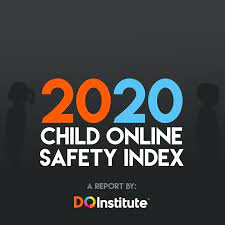
South Africa’s children are the second most likely in the world to be exposed to risky content, including violent or sexual content, second only to Thailand.
This is according to the DQ Institute’s 2020 Child Online Safety Index (COSI) which helps nations better understand their children’s online safety status
The COSI also notes that South African children are among those greatest at risk of cyberbullying, for establishing risky contacts online, and for putting their reputations at risk online. This is despite low levels of mobile device ownership, likely exacerbated by low levels of parental guidance and online safety education, and relatively low access to the internet, compared to the other 30 developed and developing countries reviewed in the research.
One of the platforms most popular among children and teens is TikTok, a short-form video-sharing app that lets users create and share short videos with soundtracks on any topic of their choice, that loops when it’s finished. It has approximately one billion active users worldwide, with one-third of its users being between the ages of 10 and 19, with The Verge recently highlighting that children spend an average of 80 minutes per day on the platform.
“Children love how there’s so much happening in TikTok videos – there’s sound, and action, and insights into other people’s lives – particularly appealing during the pandemic, when social interaction has been limited,” says Dean McCoubrey, founder of MySociaLife, a South African in-school Digital Life Skills Program teaching digital life skills program for schools.
“The speed of the TikTok feed appeals to kids’ love of intensity – loud music, bright lights, something new every couple of seconds – but this level of information density may lead to addiction, bullying, and impaired mental health, while the platform’s lack of restrictions on how can join and post content meaning that strangers can easily engage with children, without their parents’ knowledge, and embark on malicious relationships with them,” he adds.
This is why it’s vital that parents, teachers and counsellors find out what content the children in their care are consuming, and that they navigate each platform’s privacy and security features to ‘lock up the doors and windows of their children’s digital houses’.
“Keeping kids off online platforms is simply no longer a possibility, so the best we can do is to teach our children about choice and responsibility – two of the key themes in MySociaLife’s online, blended, and face to face programmes offered to South African schools,” he says.
McCoubrey highlights that TikTok recently launched a Family Safety Toolkit, developed in partnership with the DQ Institute, which incorporates the DQ Framework, the world’s first global standard related to digital literacy, skills, and readiness.
The toolkit offers parents a list of digital tips they can refer to when setting guidelines for their children’s TikTok use, and includes suggestions like checking the child’s tech readiness, agreeing on family tech boundaries, setting smart limits on screen time, and having regular open and honest conversations about cyber-bullying.
Discussions about privacy, risky content and contacts, sexting, disinformation, and the importance of support networks will also help children navigate their way safely around TikTok, and other social media platforms.
“Teens and pre-teens have so much more to deal with than their parents could ever have imagined, which is why it’s important to equip them with the tools they need to navigate their way around the online world,” explains McCoubrey.
“Teaching them critical thinking, understanding the impacts of cyberbullying, and empathy, along with how to adopt a healthy digital identity are all essential steps for them learning how to embrace technology and use it safely, how to explore it without fear, and even to use it as a means for good.”
Equipping teens and tweens with awareness of online issues – on TikTok and on any other digital platform – helps them respond more positively and make better choices, whether or not their parents are watching.
Video: https://www.youtube.com/watch?v=B6Cw10yr9OY
Notes to Editor: About MySociaLife Delivering an 8-module ‘Digital Citizenship Curriculum’, via webinar or Learning Management System, to Grade 4 to 11 learners in South African Schools, MySociaLife is the leading Digital Life Skills Program in the country. The Program has unmatched efficacy (data) with regards to student impact and behavioural change from the extensive modules which include: critical thinking, cyberbullying and empathy, sexuality online, a digital values system, privacy and security, mental health and resilience, and screen time addiction. End goal? Safer, smarter kids online – who will be able to explore and excel way beyond their peers as we slipstream into the highly competitive and demanding Fourth Industrial Revolution. Click here, www.mysocialife.com
Additional training kits for parents (links)

